Navigating the professional world can be a journey filled with unexpected turns, growth opportunities, and moments of self-discovery. We delve into the career path of Roschelle Marshall, who embodies the spirit of resilience and adaptability. From early days growing up in a culturally rich environment in Aotearoa, blending Samoan heritage with Pālagi and Māori influences, to her current role as a consultant in Tāmaki Makaurau, her story is one of continuous learning and passion for social impact.
Roschelle’s career spans various sectors, including marketing, financial services, and social enterprise, each step marked by a commitment to making a positive difference. She shares insights on the importance of resilience, overcoming imposter syndrome, and the power of advocating for oneself in the workplace. This journey also highlights the significance of cultural understanding, sustainability, and the drive for equity in all professional endeavours.
As we explore these experiences, we uncover valuable lessons on the importance of connecting with people, fostering community-driven solutions, and leveraging business as a force for good. This introduction sets the stage for a deeper look into how personal values and professional aspirations can intertwine to create a fulfilling and impactful career. Whether you’re just starting out or looking to pivot in your career, this story offers inspiration and practical advice for navigating your own professional journey.
Roschelle’s career is a testament to resilience and adaptability, spanning diverse sectors from marketing to financial services, and now, social enterprise. Each step of the journey reflects a commitment to making a positive difference, driven by a love for connecting with people and a lifelong curiosity. Roschelle candidly shares experiences with overcoming imposter syndrome, self-advocating, and the importance of resilience in the face of setbacks.
This story is not just about professional achievements but also about personal growth and the power of cultural understanding.
The six pou of Mata Ārahi Manomano drive the questions we have used to profile Māori & Pacific role models, like Anthony, in the Service sector.
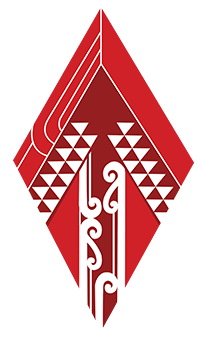
|
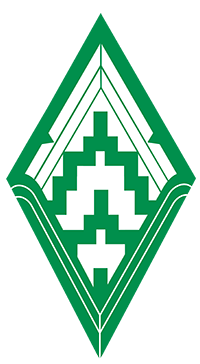
|
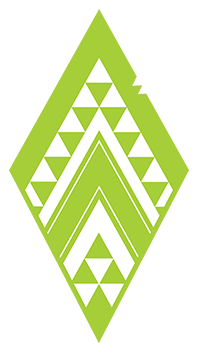
|
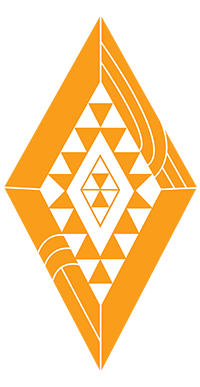
|
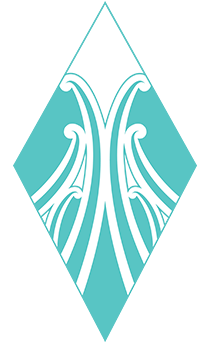
|
|

Representing the levels and forms of aroha that can be found throughout our lives across our many communities. We acknowledge the wide range of obstacles and the journey it takes to overcoming everything that stands in our way to expressing aroha within.
Kia ora, Talofa lava. I call myself a love child of Pacific Aotearoa.
My mum is from the village of Lefaga, Samoa, but she was actually whāngai-ed out to her Aunty. She grew up in Vaimoso before coming to Aotearoa at 16 for her education.
She met my father, a young Kiwi guy who is second generation Scottish, Irish, and Wellingtonian.
They were only 20 going on 21 when they had me, so I call myself a love child of the 70s because, they fell in love quite quickly and then I came along.
I am fortunate I grew up in Aotearoa with my Pālagi side and my Samoan side. But I had this beautiful intertwining of te ao Māori and tikanga as well.
I live in Tāmaki Makaurau with my husband, who’s from England, and I have two beautiful tamariki.
I’ve always been somewhat extroverted and drawn to different people. I’m also curious and I like to know what people’s stories are. I love to grow, challenge myself, learn more, and help others. I think those are my strengths.
The things that I’m still working on include resilience. I need to learn not to take things too personally. I have to remember that it isn’t personal; it’s just circumstantial. Imposter syndrome is another thing.

Seeking guidance from our kaitiaki Hiwa-i-te-rangi, we take a journey through our different aspirations, goals and dreams. This tohu acknowledges hard work, wisdom, the reach of ones goals and the desire that comes from this mahi.
I am the founder and Director of Honor, Impact, and Communications. At the beginning of 2024, I went out on my own as a consultant so I could have more flexibility, but also to work with clients that share my values. I work in the area of social impact and social enterprise, as well as communication, helping to amplify the really good work that communities are doing in Aotearoa.
My career aspirations are rooted in equity. This led me to pursue a more equitable world. I kind of fell into social enterprise a couple of years ago when I realised that many business models today can actually be businesses for good. It comes back to the idea that you can use your skills to do good and make a difference. I didn’t realise this early in my career.
I aspire to enable those who want to do good through business or for their communities. My current pathway is leading me towards ensuring equitable access to information and capability building, so everyone can amplify the good they are doing.
A typical day for me involves working with founders of social enterprises or impact enterprises to support them on their journey to make an impact, whatever that may be. I work with many Māori founders and entrepreneurs, and I would like to work with more Pacific founders as well.

With adventure comes challenges as well as obstacles to overcome. We stand proud as we overcome these obstacles. This tohu draws inspiration from the Niho Taniwha and Aramoana patterns. We acknowledge reaching our destination and preparing ourselves for the many new adventures ahead.
I started my marketing degree while working as an office manager, studying at night. Eventually, I got fed up and decided to travel, thinking I should be an air hostess, which I wanted from the age of eight. I joined Emirates when I was 22 and flew for them for about three to four years, based out of Dubai.
The interesting thing about working for Emirates is that you get to see amazing destinations and work with people from 100 different nationalities. They recruit from all over the world. We didn’t call it diversity, inclusion, and equity back then, but it was about learning where people were from, their customs, and cultures.
I came back and continued working in the travel industry, but the industry in New Zealand is small, so I moved to financial services, working for an insurance company.
There, I learned about sustainability, which was a turning point. I realised I could do more with my skills than just advertising and marketing.
I realised I didn’t like charity work because it always involved seeking funding, whereas businesses have products and services that generate income. This led me to social enterprise, where you create income to support your whānau and intergenerational wealth.

These patterns represent bravery and being strong in the face of adversity. We strive to be persistent and positively challenge anything that threatens to alter, restrict, and put a barrier in the way of our desired pathway.
I think one of my most defining moments was when I moved to Dubai, which is a Muslim city. When you’re taken out of your environment in that way, you have to really stand firm in knowing who you are.
I always had this tension between my Samoan and Pālagi side. I felt like I had to be white because that was the way to succeed. I wasn’t brought up speaking Samoan at home.
When I went overseas, I realised I was a Kiwi. No one cared about my bloodlines; what mattered was that I was a New Zealander, representing Aotearoa.
Another defining moment was working in an insurance company where the CEO taught me about sustainability. This opened my eyes to the realisation that you can plan for 50 or 100 years, not just two or three. Now, everything I do has to be for making a difference.
Completing my masters in 2024 was also defining. The first six months of the course focused on authentic value. I realised I had really big Pacific values. It made me realise I am Samoan enough and it was huge for me to own it.
There is nothing I want more than to support Pacific people. I went to Samoa for the first time in 30 years in 2024 and took my family because it was time.

Here we are drawing inspiration from the Pūhoro pattern. The pūhoro is used here to represent the strength, speed and agility needed to move forward and accomplish ones goals.
For me, it’s about seeing Pacific people thrive. The skills I can bring in that is potentially through research, as I focused my research on Pacific entrepreneurship. But the role I can play is actioning that in the community—connecting different organisations that want more Pacific business owners in Aotearoa, and fostering collaboration and movement around that.
If you can connect with people, I think that’s a gift. Sometimes those harder, more technical skills and qualifications are important and help you open doors, but the sustainability of your career will always come back to being able to connect with people. Nurture it, nourish it, and learn more about how to do that.
Whatever you do from the heart, when you bring manaakitanga and alofa to any situation, whether it’s with an individual or speaking to a large group of people, people will always feel and see that, no matter how different you are.
I remember in high school, I won the Best Smile award, and even one of my colleagues who left my work last year said, “I’ll miss your smile.” I used to think this felt really shallow, but then I realised it’s not just my smile—it’s how it makes people feel.
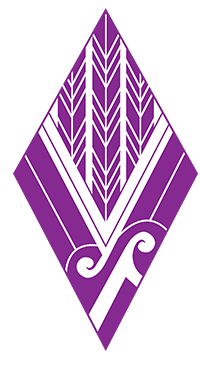
Success, best mentioned in the whakatauki “Tūwhitia te hopo, mairangatia te angitū!” Feel the fear and do it anyway!
Some of the things in my career that I’ve been really unhappy with are related to unjust situations.
When I was working at an insurance company, I really wanted a role in sustainability in a newly-established department. I was interviewed by two men who told me I didn’t want that role because I wouldn’t enjoy working for that leader.
They decided for me, and I was furious. So, I dug my heels in and took redundancy instead.
Advocating for yourself in the workplace is really hard, and that’s why you need good leaders and sponsors who encourage and coach you.
One of the biggest wins in my career was being part of a team that conducted New Zealand’s first well-being survey. It ended up focusing a lot on mental health.
I saw the power of business to invest in social issues, bring in partners, and create social innovation. I remember sitting in the hospital with my first baby, who had just been born, and seeing the Sunday program on TV talking about the survey. It felt like I had birthed two babies.